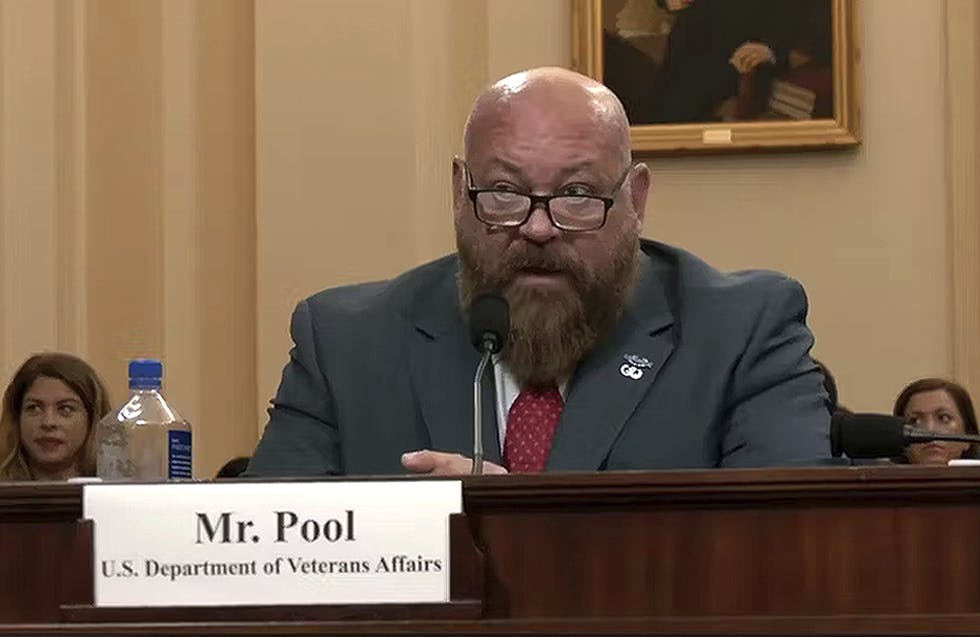VA Reports Decrease in Veteran Suicides
Technologies and communication strategies helped the agency see the first annual decline in suicide since 2005.

The Department of Veteran Affairs reported a decrease in veteran suicides in 2019, the first annual decline in nearly 15 years.
Veteran deaths from suicide have been rising year over year since 2005, two and four years after the opening of the U.S. occupation of Iraq and Afghanistan respectively. These commitments led to a significant increase in the number of soldiers exposed to combat trauma, one of strongest precipitators of PTSD and other service-related mental health conditions.
Providing critical mental health and crisis support services have become a key priority for VA in light of this steadily rising figure, with National Suicide Prevention Director Dr. Matthew Miller stating in a call with reporters that nationwide veteran suicides had increased on average by 48 each year from 2005 to 2018.
“399 fewer veterans died from suicide in 2019 than 2018. Just as an anchor, 2019 was the lowest raw count of veteran suicides since 2007 … A reversal totaling 399 lives is unprecedented,” Miller said.
The report noted that 6,261 veterans died from suicide in 2019 — a 7.2% decrease from 2018 — and that the veteran suicide rate of 31.6 per 100,000 is still nearly twice that among non-veteran adults in the U.S. This decrease in veteran suicides was greater than the overall decrease in suicides among the non-veteran population, which saw a drop of 1.8% in 2019.
These figure indicate a potential payoff from VA’s increasing focus on suicide prevention and outreach efforts, which the agency has shifted along with its overall mental health services to a public health approach. This has incorporated a broader program of reaching out to and coordinating with community providers, allowing for outreach to veterans through sources closer to home.
VA representatives have stated that the agency intends to continue expanding this program, and ensuring mental health outreach and community support continue to receive backing and resources. The recent Afghanistan drawdown has sparked particular concerns around veterans suicide prevention efforts, as VA has disclosed that the end of the 20-year occupation has led to a spike in reported mental health crises among those who served in the region. This has included a rise in both texts and calls to VA crisis lines.
“What we’ve seen from Aug. 13 to Aug. 29 is about a 7.05% increase in calls when compared to that same time last year. And for text, we’re seeing a more significant increase of 97.92% compared to last year. So you’re seeing more volume come in that direction,” said Lisa Kearney, executive director of the VA Veterans Crisis Line, during a call with reporters Aug. 31.
In a call with reporters following the release of the VA’s annual suicide prevention report, Miller confirmed that the agency has focused on bolstering its communications efforts to inform veterans as to the availability of crisis lines and mental health services in the wake of the Afghanistan drawdown.
“The campaign has stimulated and reinforced further levels of engagement. The success is evidenced in the fact that people are calling us, people are texting us and they’re engaging with the Veterans Crisis Line, which is an indicator that not only are they aware but they’re reaching out,” Miller said.
This has been coupled by outreach efforts on behalf of veteran service organizations, with the Wounded Warrior Project recently launching a campaign to call 40,000 Afghanistan veterans in order to help connect them with mental health services and support networks.
This is a carousel with manually rotating slides. Use Next and Previous buttons to navigate or jump to a slide with the slide dots
-

VA CIO Targets Modern IT and Smarter Workforce Alignment
Agency leaders told lawmakers they are focused on trimming legacy systems and restructuring its workforce to streamline operations.
3m read -

VHA’s AI Chief Led NIH’s New AI RFI
The agency's AI chief Gil Alterovitz helped develop a plan that hints at how NIH is charting the future of AI and biomedical research.
5m read -

Trump Taps Maj. Gen. John Bartrum to Lead VHA
Nominated for VA's top health role, Bartrum brings over four decades of military and public service to the agency.
3m read -

VA Secretary Tells Congress Tech Efficiencies Will Help Offset Workforce Reductions
Technology improvements will help allow department to maintain veteran care, VA leadership tells Senate Veterans Affairs Committee.
-

Data Modernization for Federal Health Enterprise
Technology and modernized data systems are opening up new frontiers for health care clinicians, agencies and patients.
37m watch -

Bird Flu Highlights Modernization Opportunities in Public Health Data
Experts are expanding data sharing and leveraging GIS technology to improve bird flu tracking, prediction and response.
5m read -

HIMSS: AI's Role in Health Care Innovation, EHR Compliance
Federal agencies and industry partners are increasingly exploring AI use to improve health care.
13m watch -

HIMSS: HL7 Standards Boost Health Data Interoperability
For over 30 years, Health Level Seven International (HL7) has set the standard for electronic health information worldwide.
13m watch -

HIMSS: DHMS' Enterprise Approach to Health Care Interoperability, Innovation
The agency’s enterprise data program is modernizing data sharing within EHRs for the military.
16m watch -

HIMSS: AI Revolutionizes Federal Health Services
NTT Data’s Noel Hara shares insights on AI, efficiency and innovation in IT strategy and healthcare outcomes.
8m watch -

HIMSS: Bolstering AI, Interoperability to Transform Veteran Health Care
At HIMSS, Dr. Shane McNamee and Dr. Johnathan Nebeker discuss how they’re improving data to unlock AI’s full potential.
16m watch -

APIs Are Supporting Community Care Interoperability at VA
The agency is seeing success with initiatives like its Veterans Interoperability Pledge and USCDI standards in supporting veteran health care.
7m read
















